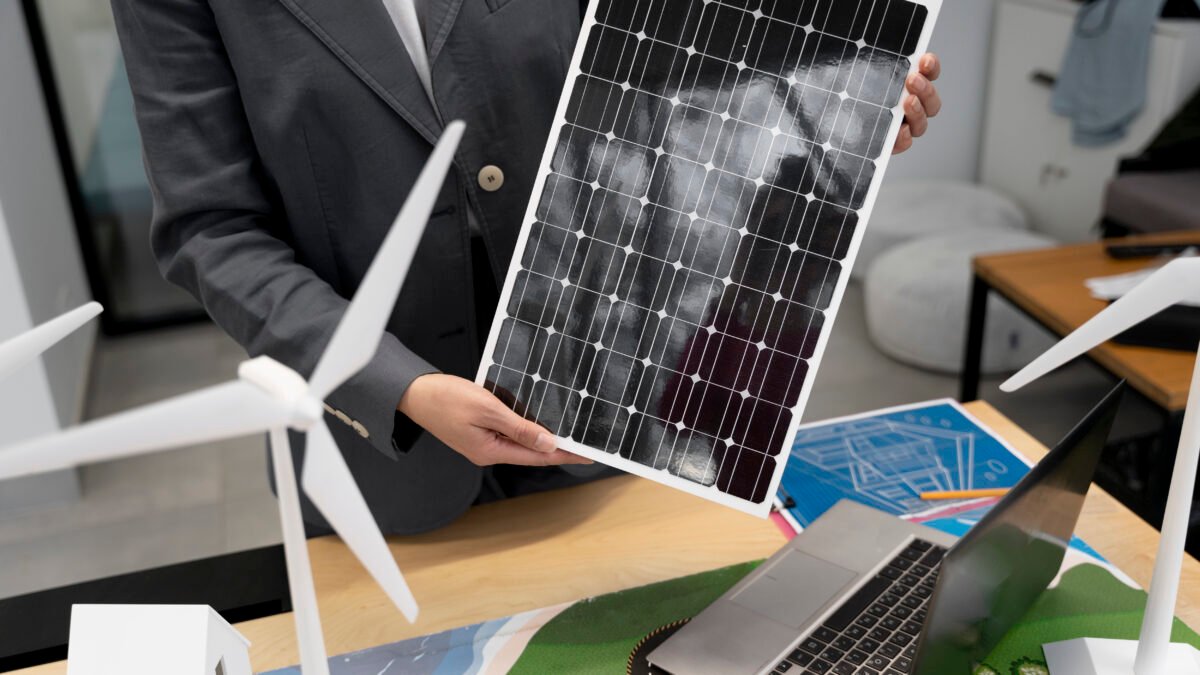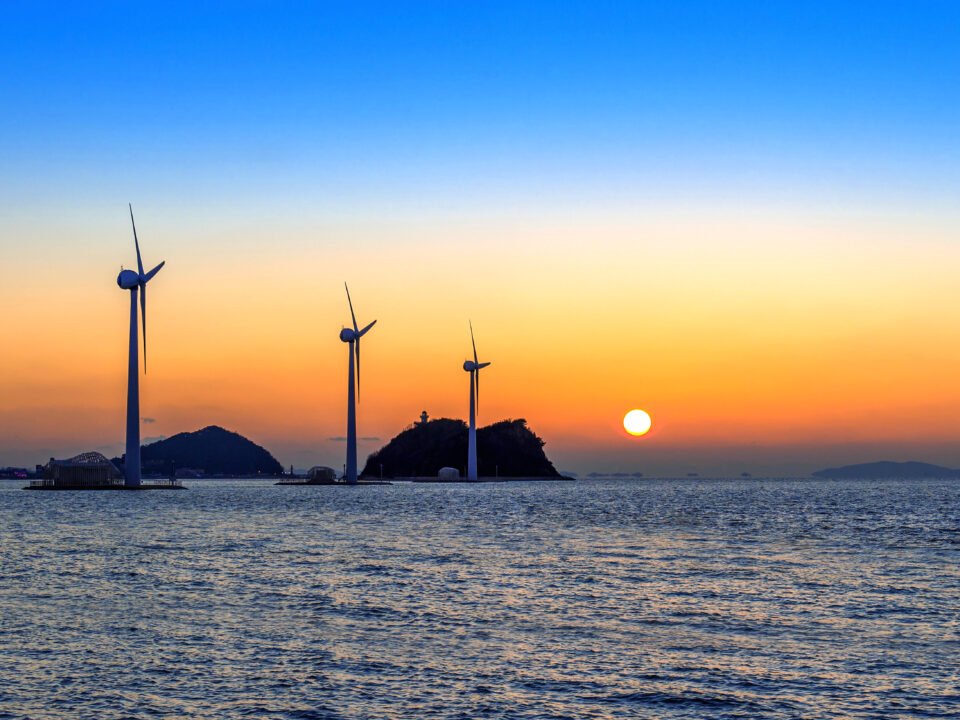India stands at a crucial point in its energy journey. As one of the world’s fastest-growing economies, the country’s demand for electricity is increasing rapidly. However, the global climate crisis, coupled with India’s commitment to sustainability, is pushing the nation to shift its energy mix toward clean and renewable sources. At the center of this transformation is the Ministry of Power and Renewable Energy, which plays a pivotal role in ensuring that India not only meets its rising energy demand but also does so responsibly.
In this blog, we will explore the vision, initiatives, achievements, and future goals of the Ministry of Power and Renewable Energy and how it is driving India’s clean energy future.
The Role of the Ministry of Power and Renewable Energy
The Ministry of Power and Renewable Energy oversees India’s power sector and renewable energy programs. It is responsible for formulating policies, implementing reforms, and driving large-scale clean energy projects. Its mission is twofold:
- Power for All – ensuring that every citizen has access to reliable and affordable electricity.
- Sustainable Growth – transitioning India toward green energy solutions such as solar, wind, hydro, and biomass.
This dual approach ensures that economic growth does not come at the cost of environmental degradation.
Key Initiatives by the Ministry
1. National Solar Mission
Launched under the National Action Plan on Climate Change, this initiative has positioned India as one of the leading solar power producers in the world. The Ministry of Power and Renewable Energy has set ambitious targets to install 280 GW of solar capacity by 2030, making solar the backbone of India’s renewable energy journey.
2. Wind Energy Development
India is blessed with vast wind corridors, particularly in states like Tamil Nadu, Gujarat, and Maharashtra. The ministry has been promoting wind-solar hybrid projects to maximize land use and increase efficiency.
3. Ujjwal DISCOM Assurance Yojana (UDAY)
A major reform program aimed at improving the financial health of power distribution companies (DISCOMs), ensuring that consumers get uninterrupted and affordable electricity.
4. Green Energy Corridors
To integrate renewable power into the national grid, the ministry launched the Green Energy Corridor Project, which focuses on strengthening transmission networks across states.
5. Energy Efficiency Programs
Through initiatives like Perform, Achieve and Trade (PAT) and the National Electric Mobility Mission, the ministry promotes efficient energy use and electric vehicle adoption to reduce dependence on fossil fuels.
Achievements of the Ministry of Power and Renewable Energy
The impact of the ministry’s efforts is visible in India’s growing renewable energy capacity. Some key achievements include:
- India ranks 4th globally in renewable energy installed capacity.
- Over 180 GW of renewable capacity has already been installed as of 2023, including solar, wind, hydro, and biomass.
- Electrification of 100% of villages has been achieved, bringing power to millions of households.
- Large-scale solar parks and rooftop solar projects have transformed the urban and rural energy landscape.
- Energy efficiency programs have helped avoid millions of tons of CO2 emissions annually.
These achievements highlight the crucial role of the Ministry of Power and Renewable Energy in balancing energy security with sustainability.
Driving India Toward Energy Independence
India’s energy import bill has always been a concern, with a heavy reliance on coal and oil. The ministry’s clean energy initiatives are reducing this dependency. By scaling up renewable energy, India not only strengthens its energy independence but also boosts domestic industries and generates employment in the green energy sector.
The government’s focus on Atmanirbhar Bharat (self-reliant India) aligns closely with the ministry’s mission. For instance, the push for domestic solar module manufacturing under the Production-Linked Incentive (PLI) scheme ensures that India becomes a global hub for renewable technologies.
Challenges on the Path Ahead
While progress has been remarkable, several challenges remain for the Ministry of Power and Renewable Energy:
- Grid Integration: Managing the intermittency of solar and wind power requires advanced grid management and storage solutions.
- Financing: Renewable energy projects demand high initial investments, which can be a barrier for developers.
- Land Acquisition: Large-scale solar and wind projects require vast tracts of land, leading to social and environmental concerns.
- Distribution Sector Issues: Financially stressed DISCOMs can affect the sustainability of renewable projects.
The ministry is actively addressing these issues by promoting energy storage solutions, attracting foreign investments, and implementing policy reforms.
Future Vision of the Ministry
The Ministry of Power and Renewable Energy has laid down a roadmap for the future that is both ambitious and inspiring:
- Achieving 500 GW of renewable energy capacity by 2030.
- Ensuring that 50% of India’s energy needs are met by non-fossil fuel sources.
- Promoting green hydrogen as the next big step in clean energy.
- Expanding electric mobility and charging infrastructure across the country.
- Strengthening regional and global collaborations for sustainable energy development.
These targets not only aim to meet India’s domestic needs but also contribute significantly to global climate goals.
The Global Significance of India’s Energy Transition
The efforts of the Ministry of Power and Renewable Energy have far-reaching implications beyond India’s borders. As the world’s third-largest energy consumer, India’s transition to renewables sends a strong message about the viability of large-scale clean energy adoption.
India’s leadership in initiatives like the International Solar Alliance (ISA) also reflects its commitment to helping other nations access affordable solar technology. By sharing expertise and resources, India is contributing to a global clean energy revolution.
Conclusion
The Ministry of Power and Renewable Energy is not just a government body—it is the driving force behind India’s clean energy transformation. Through innovative policies, ambitious targets, and large-scale initiatives, the ministry is ensuring that India’s energy future is sustainable, affordable, and inclusive.
As the nation progresses toward its 2030 renewable energy goals, the ministry’s role will become even more critical in balancing growth with environmental responsibility. With continued efforts, India is on track to become a global leader in renewable energy and set an example for the world in building a cleaner, greener future.



